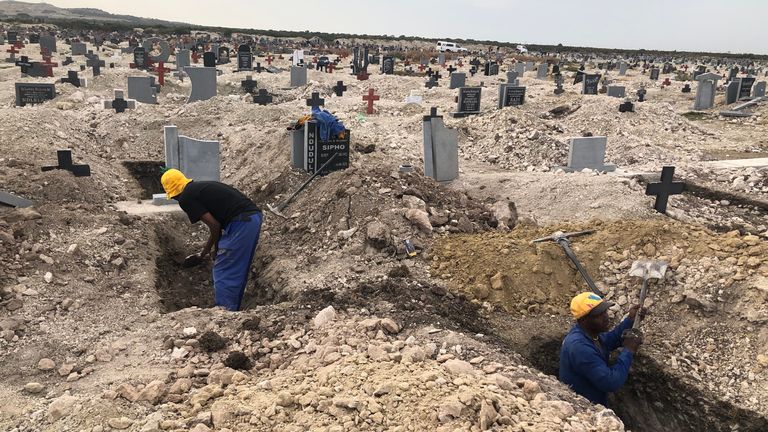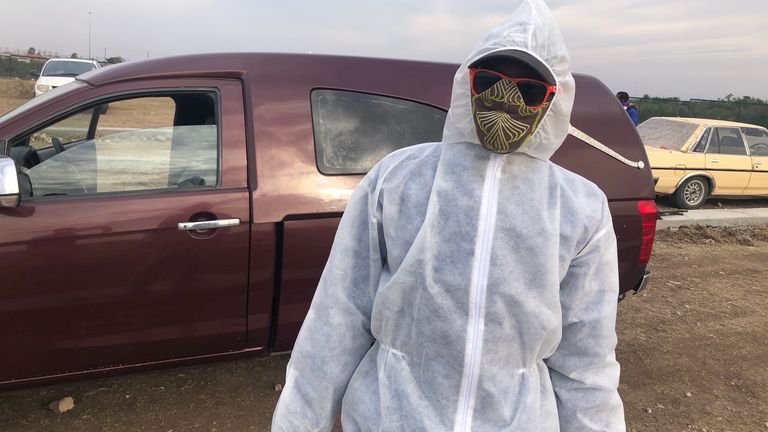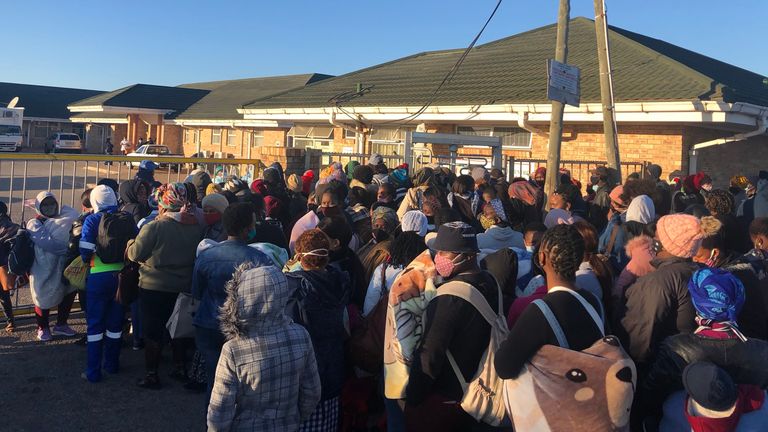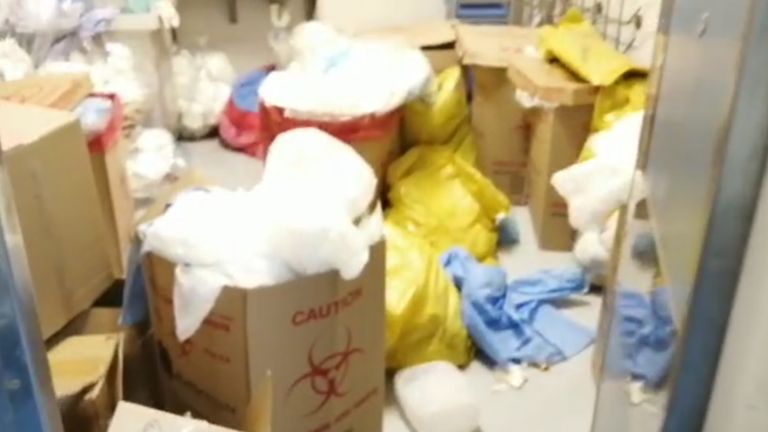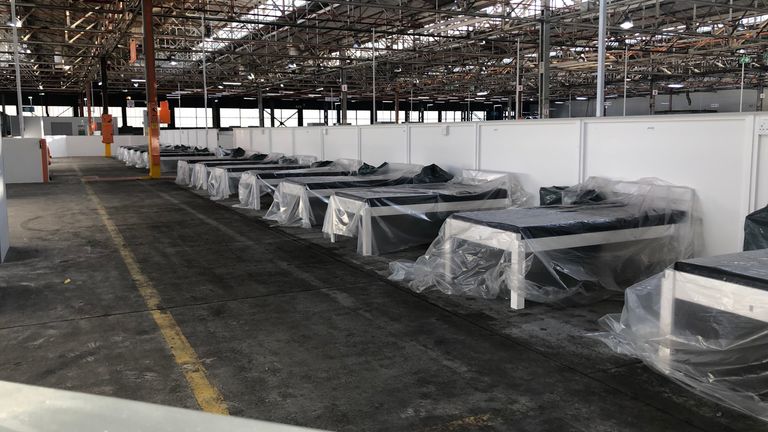Funerals in South Africa are grand events that require time and money to organise – plenty of which could be seen as we pulled up to the Shweme Zilamkhonto funeral parlour in Port Elizabeth.
On the forecourt, workmen were cutting and polishing tombstones, while a fleet of sporty-looking funeral wagons were loaded up with bodies out the back.
Three victims of COVID-19 were on the morning’s burial schedule.
I watched the funeral director’s employees – dressed in full biohazard suits – as they placed one plastic-wrapped coffin in the back of a Ferrari-red hearse.
The coffin was then taken to a windswept cemetery in the township of Motherwell, which sits and sprawls on the outskirts of Port Elizabeth, and I witnessed the men in protective suits deposit the box in a freshly-dug hole.
A small group watched on from a distance as a man called Diamond told me they were saying farewell to a 58-year old woman called Joyce Moni.
There was no music, prayers or fellowship to honour this mother-of-four, and the men standing in the group of onlookers were too scared to approach the grave site.
I asked the director of the funeral parlour, Mandla Herdashe, if he could explain.
He said: “The people are so afraid of the virus, they are discriminating [against] their own, you know.
“When you pay last respects, you get to close the hole, you throw a piece of soil, but with this pandemic nothing of the sort happens, it is very sad.”
There were some who thought South Africa would be spared the worst of the global pandemic, but the virus has taken root, spreading rapidly through the country’s densely populated townships.
In fact, South Africa has become the world’s fourth-largest source of daily cases of COVID-19, with health minister Dr Zweli Mkhize simultaneously warning of a “coming storm” and a serious shortage of essentials like hospital beds and compressed oxygen.
Port Elizabeth is the largest city in the Eastern Cape province and it has become clear that the community’s poorly managed health system has begun to buckle.
At Motherwell Hospital, residents told us they started queuing at 2am for coronavirus tests and medication for long-term illnesses. It was here that people bunched up and fought with each other when staff began to let them through the gate.
Any thought of social distancing was abandoned in the rush for treatment.
I spoke to one elderly man who had been caught up in the commotion.
He said: “This is terrible, sick people are getting sicker, some are dying on their legs now. It’s hurting me, it’s hurting, what are our people doing about this?”
Despite having months to plan for outbreaks, authorities are struggling in the Eastern Cape. Staff at the region’s largest COVID-19 treatment centre, Livingstone Hospital, described crippling staff shortages caused by sickness.
The facility is poorly kept with medical waste spilling out of storerooms and grime-covered beds cluttering the corridors.
The lack of space in the critical care wards means dedicated physicians like Dr Tobisa Fodo have to make agonising decisions about who receives treatment.
“It is heartbreaking in the sense that you end up – you and your team – having to say no to somebody’s mother, somebody’s grandmother, somebody’s father, somebody’s uncle,” he said.
When I asked him about a rough number of rejections, he added: “We will accept around about 25% of the referrals so maybe the other 75% are not going to get a bed.”
Jane Cowley, a dynamic opposition parliamentarian for the Democratic Alliance party, took us to a former Volkswagen car factory in Port Elizabeth which has been transformed into an impressive-looking field hospital with 1,400 beds.
With support and funding from Volkswagen and the German government, this facility was created in just seven weeks -but Ms Cowley pointed out that the recruitment campaign to staff it had only begun at the end of June.
:: Listen to the Daily podcast on Apple Podcasts, Google Podcasts, Spotify, Spreaker
At the moment, the field hospital is home to just 40 patients.
“Let’s hope they do get those staff in place within the next week to 10 days,” she said, admitting this was a hopeful expectation rather than a realistic one.
Eastern Cape premier Oscar Mabuyane has called for emergency assistance after revealing the province’s health system is overwhelmed.
The South African military has provided 75 doctors and nurses, and the US government has offered 50 ventilators.
But despite these extra resources, the people of the region remain scared and there is little confidence in those who have been appointed to protect them.

